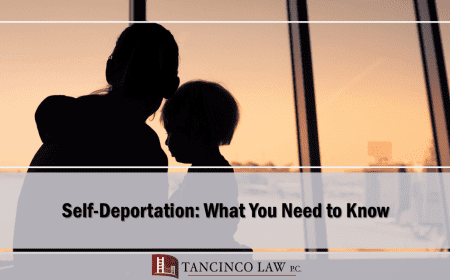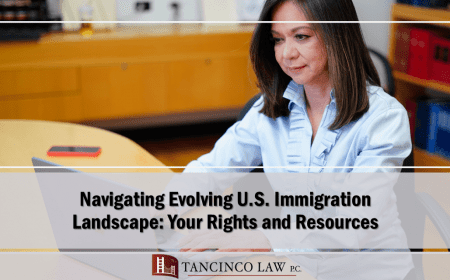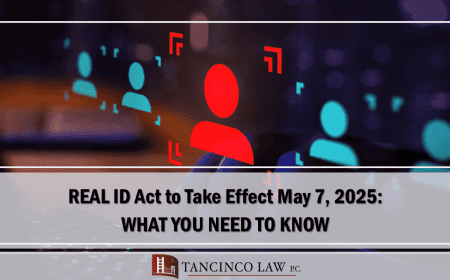
Having been in the practice of immigration law for almost 3 decades, I have witnessed the many challenges that immigrants face under different administrations. While there were challenges in the past, I can say that as practitioners we are presented with tremendous difficulties trying to comprehend the general state of immigration at the present time ….. from children being separated from their parents at the border to the threat of termination of the reunification/parole program for Filipino veterans.
The population of Filipinos in the United States is approximately 3.4 million and 1.9 million of us are foreign born. Most of the Filipino immigrants arrive in the United States either through family or employment petitions.
Approximately 370,000 of Filipinos in the United States are living in unauthorized status. That means 19% of the Filipino immigrant population are out of status …. Which is about 3% of total overall 12 million unauthorized immigrants.
President Trump issued Executive Orders in January 2017 that are now the basis for DHS/USCIS policy changes. These executive orders are those involving Interior Enforcement, Exterior Enforcement and the Travel Ban.
ICE Heightened Enforcement
What is happening right now is that enforcement of immigration law is the priority over immigration benefits. Resources of the government are being re-allocated by increasing the budget for ICE over that of the USCIS. Unlike in the past administration, prosecutorial discretion was exercised by ICE officers and there was consideration given if a person in unlawful presence had a U.S. citizen spouse, parents or children. Now, it does not matter whether the person being arrested has US citizen immediate relatives, ICE may take anyone in custody if found in unlawful status. Trump announced ICE raids on millions of undocumented. This for sure created fear among those affected. However, after the announcement, there was intense dissemination on social media, on television and in various platforms of the due process rights even for those who are in unauthorized status. While the announcement was to arrest millions of undocumented, only a few hundred were apprehended.
There are serious effects on members of the Filipino community regarding the actual ICE arrests or the announcement of intended mass arrests. I have known a few number of families who decided to depart voluntarily from the United States to stay in the Philippines or explore their other options. It created fear and paranoia among many in our community forcing them to make hasty decisions to leave. Even those legal immigrants and U.S. citizens were afraid for the safety of their relatives.
Delay in Adjudications of Immigration Benefits
The new policies that are in place, with priority being placed on removal of unauthorized individuals, affected also legal immigrants and U.S. businesses. It is now taking a long time for USCIS to adjudicate petitions. The backlog of pending petitions and applications have increased in the last 3 years. Naturalization applications used to be adjudicated in 4-5 months, now it is taking one year here in the Bay Area. Other applications such as applications for employment authorizations, adjustments of status, change of status, advance parole are taking so long that it is not unusual to have adjudications taking more than a year.
Delays and the ensuing repercussions on the lives of individuals and U.S. businesses are significant, and these include job loss, loss of critical business contracts, delayed education, the inability to travel internationally for important family and business events, and the inability to renew driver’s licenses
H1B Visas Increase in RFE
With the Buy American Hire American policy laid out by the Trump Administration, it is now difficult to obtain approval of H1Bs because of heightened standards that are being imposed to qualify positions for an H1B. There is a surge of what you call the RFEs or Request For Evidence especially for computer related occupations. Many RFEs request information or documentation that has already been submitted, apply an evidentiary standard that goes beyond the regulatory standard of “preponderance of the evidence,” and are sometimes even followed by a second RFE raising new issues not previously flagged in the first RFE. With the surge in RFEs also comes the reported increase in denials of H1Bs.
These changes made it harder for U.S.employers to hire and retain foreign workers. Many professional Filipinos lose out on their opportunities to be petitioned by US employers, prompting them to explore options in other countries like Canada or Australia.
New Rules on Public Charge
On August 12, 2019 USCIS released the new public charge rules. This will take effect in 60 days from publication or in October 2019. A “public charge” finding as a ground for inadmissibility or basis for denial of visas An individual is considered a public charge if s/he is dependent primarily on government assistance for her/his subsistence.
Before the changes, the public charge rule was that a person who is dependent primarily on welfare or government assistance will be denied a visa if s/he availed of monetary public benefits such as (1) Supplemental Security Income or SSI for the aged, blind and disabled; (2) Temporary Assistance for Needy Families (TANF) cash assistance, and (3) State and local cash assistance programs known as General Assistance (GA).
Under the new proposal the definition of public benefits in determining whether one is a public charge has been expanded. The additional public benefits are Medicaid (with limited exceptions for medicaid benefits paid for an “emergency medical condition,” and for certain disability services related to education), Medicare part D low income subsidy, the Supplemental Nutrition Assistance Program (SNAP, or Food Stamps), institutionalization for long-term care at government expense, Section 8 housing choice voucher program, Section 8 project-based rental assistance, and public housing.
In addition, the new rule added the totality of circumstances test in determining whether one is a public charge. This means that USCIS examiner or consular officer may now examine varying factors that may lead them to the conclusion that the applicant for an immigrant visa is likely to become a public charge. These factors include applicant’s age, health, family status, assets, resources, and financial status, and education and skills.
Several community immigrant advocates had opposed the new proposals as being discriminatory against low income immigrants who may happen to receive some benefits because of sudden illness or they have unexpectedly lost their jobs due to economic downturns or changes in their company. In most cases. receipt of benefits is only temporary and simply served as a basic economic safety net to provide economic stability until the individual becomes self sufficient again. To count this safety net against them in their future application for green card is cruel and unjust.
Specific to Filipinos
As you can see, those that are targeted are not just the unauthorized immigrants but also the legal immigrants as well as U.S. citizens. There is even a denaturalization task force created to check on naturalized citizens records to see if there are grounds to re-open and denaturalized U.S. citizens if there was prior unresolved fraud or undeclared past criminal convictions.
H2 Visas
But there are also policies that are specifically targeted against Filipinos. These are the H2B visas.
Every year since 2008, the U.S. Department of Homeland Security and the Department of State publish a list of countries whose nationals are eligible to receive H2A and H2B visas. Philippines has always been on this list except for the current year 2019. In a surprising announcement through the Federal Register publication on January 18, 2019, the Philippines together with Dominican Republic (H2B only) and Ethiopia were deleted from the list. This means that no Filipino will be able to receive an H2 Visa beginning 2019. The reason for including the Philippines in the list of countries banned from receiving these visas is that more than 40% of the visa holders do not return to the Philippines after the expiration of their visas. However, what is not taken into account is that majority of these workers are victims of human trafficking. Instead of penalizing the Filipino workers by banning them from receiving working visas, why not punish these human traffickers by taking aggressive actions to run after the guilty instead of targeting the victims ?
The working visas impacted by this bad news are the H2A and the H2B visas.
H2A visas are working visas issued to perform agricultural labor or agricultural services of a temporary or seasonal nature. The farm labor includes the raising of livestock, any practices including forestry and lumbering incident to or related to farming operations, handling, planting, packaging to market or carrier for marketing.
H2B visas, on the other hand, are those applied for to work in non-agricultural labor. The type of jobs mostly availed by Filipinos who are temporary and seasonal work in the hotel or construction projects.
There are 66,000 visas that are issued each fiscal year. For the year 2017, Filipinos availed of 767 of the H2B visas and that was approximately a little more than 1% of the allocated visa. In rendering Filipinos ineligible of the H2B visas, there is not much impact on U.S. employers in general. However, the 1% is still important to Filipino workers and to their employers and that most of those affected are head of their families. If there is a genuine employer and employee relationship, despite the ineligiblity of Filipinos, their employers may still seek a reconsideration to qualify Filipino workers as a matter of discretion and on a case by case basis if it is in the U.S. interest for the Filipino worker to receive the H2B visa. A discretionary factor that may be taken into account is the worker’s prior admission as H2B and that the worker previously complied with the terms of the program.

FWVP and the Filipino World War II Veterans
On August 2, 2019, the U.S. Citizenship and Immigration Services announced its plan to terminate the Filipino World War II Veterans Parole program or the FWVP. This program was conceived almost 3 years ago during the Obama Administration and is set to terminate in 2021.
The FWVP program since its inception has allowed veterans and their widows to live with their families on parole status. After serving under the U.S. flag during World War II without recognizing their sacrifices and granting them their benefits, the elderly veterans sought to have family unity during their twilight years. Through the FWVP, sons and daughters of veterans were able to provide the much needed care for their aging parents.
The latest announcement of the USCIS as it is published indicates that this is a “plan” much like the announcement made a couple of months ago that ICE plans to conduct “mass raid of millions of undocumented”. What this means is that there is no immediate termination of the FWVP, so all those who are on parole status under the FWVP must not fear having to immediately leave the U.S. at the expense of abandoning their elderly veterans or veterans’ widow.
The FWVP was intended for our Filipino World War II veterans, but based on our experiences at the Bayanihan Equity Center (f.k.a. Veterans Equity Center), hundreds of veterans passed away before they were even able to benefit from this program. With very few of them alive, why deprive them of the benefit of being reunited with their families? As a community, we have to continue to uphold our heroes’ dignity and not cut them from their much needed family support.
Pending Immigration Bills
There are many bills pending in Congress but let me mention 2 important ones:
1. The RAISE Act: Threat To Cut Family based legal immigration
On August 2, 2017, with the support of President Trump, Senators Tom Cotton (R-AR) and David Perdue (R-GA) introduced the Reforming American Immigration for a Strong Economy (RAISE) Act (S. 1720). This bill seeks to eliminate the immigration system that we know today and replace it with a points-based system that ignores the benefits of family unity and the needs of U.S. employers. Subsequently, on September 14, 2017, Congressman Lamar Smith (R-TX) introduced the Immigration in the National Interest Act (H.R. 3775), which is the House companion bill to the RAISE Act.
These bills would eliminate ALL family-based legal immigration categories except for spouses and children (under the age of 18) of U.S. citizens and permanent residents. This means, for example, that adult U.S. citizen children would be denied the opportunity to permanently sponsor their parents, a direct attack on the family. The temporary visa proposed by these bills for parents of U.S. citizens is simply not enough.
2. BELIEVE ACT
Senator Rand Paul (R-KY) introduced on July 11, 2019 the Backlog Elimination Legal Immigration Employment Visa Enhancement (BELIEVE) Act. (S.2091). It improves the system as far as the skilled immigration is concerned by increasing the number of green cards that will be issued to employment based immigrants without affecting other visa categories.
There are three important elements: First, it will greatly eliminate the backlog by increasing the worldwide limitation of employment based visas from 140,000 to 270,000. Incidental to the increase, the per country limitation of 7% is eliminated. Second, it alleviates the health care worker shortages because it exempts the Schedule A, Group 1 from being counted in the worldwide limitation. And lastly, this bill provide protections to spouses and children of certain non-immigrant work related visas. The children of E, L and H will be able to apply for permanent resident status as long as they meet certain eligibility requirements.
We all know that most registered nurses are not eligible for the H1B visa and so exempting this category from the numerical limit will mean that more RNs may be hired without facing visa backlogs. This bill if passed into law would create a faster process for RNs and PTs to immigrate in the U.S. so that they will be able to fill in the shortages.
Call To Action
WHO WE ARE: This nation is built by immigrants and unless you are an American Indian, it does not matter whether you are a US citizen at birth or a naturalized U.S. citizen you will always be an immigrant. Today, I heard mass and the priest mentioned very timely reminder, “know who we are, what we are and what we can share”. We are immigrants, we are alumni of a great institution, and we have the power to help make changes.
PARTICIPATE: As the leaders of our community, we have to participate in ways that will contribute to positive changes. The most concerning trends are those who that affect family, the policies that foster family separation. We have to work together to send a strong message to the administration to preserve families, stop the unjust and inhumane treatment of immigrants.
CONTRIBUTE: Only when we are in an environment where families are valued, important contributions, skills and talents are recognized are we able to nurture the future immigrants of this nation. And we are strong where we are, I am sure we are able to share and give back to the institution that brought us to where we are right now. We are U.P. alumni, iskolar ng bayan, matapang, matalino. We are part of the solution. We shall participate.
Thank you to The Organizing Committee of UPASF and UPAAA under the leadership of Sonia Delen and Nelsie Parrado for this opportunity to speak.
–
Speech delivered by Lourdes “Atty Lou” Santos Tancinco during the UPAAA Grand Reunion and Convention last September 1, 2019 at the Crowne Plaza Hotel, Burlingame, CA. Atty Lou is an alumna of the University of the Philippines. UPAAA is the University of the Philippines Alumni Association in America.




